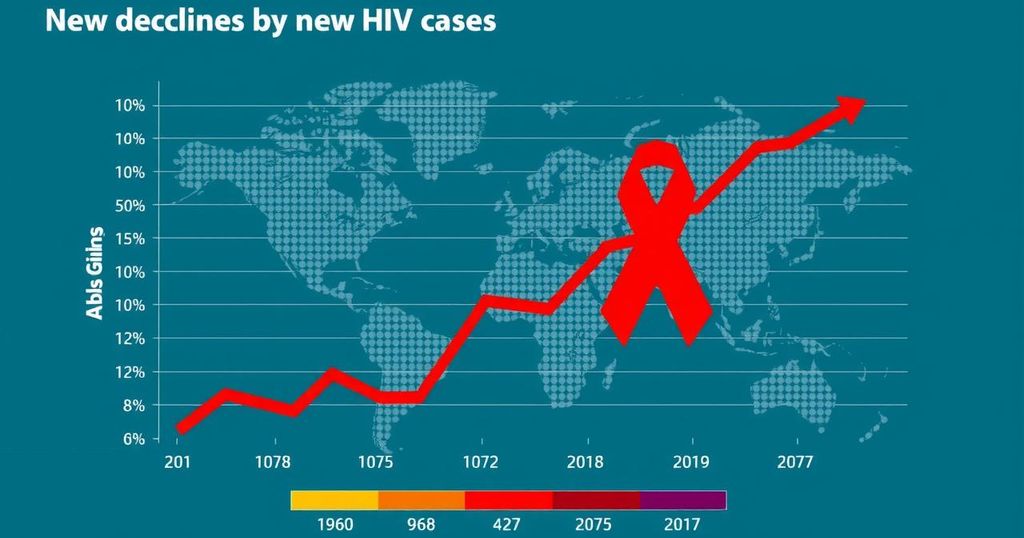The UNAIDS report indicates that new HIV infections reached their lowest point since the late 1980s, with approximately 1.3 million reported cases in 2023. However, the rate is still considerably high, exceeding UN targets for eradicating AIDS by 2030. While treatments have improved, over 9 million individuals with HIV are not receiving necessary care, and some regions witnessed rising infection rates.
According to the UNAIDS report released recently, there was a notable decline in new HIV infections in 2023, with approximately 1.3 million people contracting the virus. This figure marks the lowest level of new cases since the advent of the epidemic in the late 1980s. Despite this progress, UNAIDS emphasizes that these numbers remain excessively high, being threefold the target needed to eliminate AIDS as a public health menace by 2030. The report also highlighted that around 630,000 individuals died from AIDS-related conditions last year, a reduction from the peak of 2.1 million in 2004, largely due to the widespread use of antiretroviral therapies. However, it was noted that of the nearly 40 million individuals living globally with HIV, approximately 9.3 million are not receiving adequate treatment.
The report from UNAIDS serves as a crucial update regarding the global status of HIV infections and AIDS-related deaths. Initiatives aimed at combating the HIV epidemic have made strides, particularly through medical advancements and community-driven efforts, yet significant challenges persist. The report underscores the critical role of equal access to treatment, the dangers of legal discrimination, and the slow uptake of preventative medications in certain regions. Understanding the balance between progress and ongoing challenges is essential for addressing the disease effectively.
In conclusion, the latest UNAIDS report reflects significant advancements in the fight against HIV, evidenced by the lowest number of new infections since the late 1980s. However, the ongoing prevalence of high infection rates, particularly in certain countries, and the lack of adequate treatment for millions underscore the necessity for heightened global efforts. With appropriate attention to human rights and access to affordable healthcare, the goal of ending AIDS as a public health issue by 2030 remains achievable.
Original Source: www.seychellesnewsagency.com






